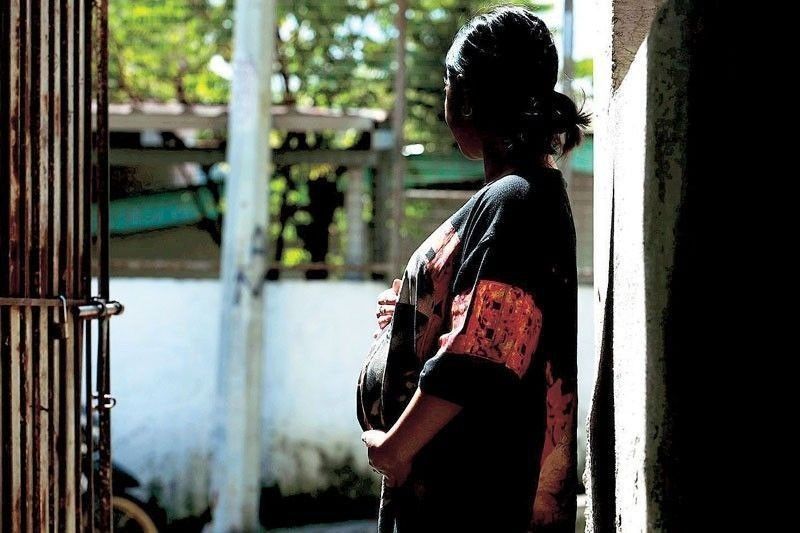UN exec: ‘Woke absurdities’ not in sex ed bill

MANILA, Philippines — The supposed “woke absurdities” that President Marcos objects to in the proposed legislation to prevent teenage pregnancy are not in the text of the bill and even in the International Technical Guidance on Sexuality Education, an official of the United Nations said yesterday.
Roi Avena, deputy representative of the UN Population Fund to the Philippines, urged policymakers to discuss the merits of the bill based on accurate scientific evidence and correct information.
“We have read the bill and we have not seen any mention of these at all… It’s not in the bill,” Avena said in an interview with “Storycon” on One News when asked about concepts opposed by various groups, such as masturbation for very young children and “exploration” of different genders at a young age.
“These are not in the guidelines and the terms of the bill itself… (They are) not part of the international guidance that we teach about these concepts,” he added, referring to the International Technical Guidance on Sexuality Education released by the UN Educational, Scientific and Cultural Organization.
Countries adapt the guidelines based on their local contexts, according to the UN official.
“Comprehensive sexuality education (CSE) is really about age-appropriate and culturally sensitive comprehensive sexuality education. It’s really about equipping adolescents with essential knowledge about sexual and reproductive health,” Avena said.
“International standards are meant to be able to guide on what is the best scientific evidence available in many other contexts, but at the end of the day, it’s really the decision of the country as to how it will adopt these standards. The element of contextualization needs to be highlighted,” he added.
The UN earlier urged Filipinos to verify information about CSE and underscored its importance to address challenges, such as teenage pregnancy, rising cases of HIV, maternal mortality and different forms of gender-based violence.
During the interview, Avena cited data on the increasing cases of adolescent pregnancy in the Philippines, as well as the lack of proper knowledge on issues, such as HIV and other sexually transmitted infections.
He also cited a survey showing that most young Filipinos get information about sex and sexuality online and from their friends.
“Are we willing to let social media and peers be the sources of information, recognizing the risk of inaccuracy from these sources? CSE is important, particularly its implementation in schools, because here, we’re really able to make it more systematic, accurate,” Avena said.
“We’re able to train systematically our educators, our teachers, so that there’s a layer of protection for our young people in terms of getting correct information, especially at this age when misinformation is becoming a trend,” he added.
There are already studies showing that “sexuality education does not hasten sexual activity, but in fact has a positive impact on safe sexual behaviors,” according to the UN executive.
“Those who were exposed to sexuality education had delayed sexual initiation,” he said, addressing concerns that CSE would push young Filipinos to be more sexually active.
Avena emphasized that at the end of the day, it is the Philippine government that will decide how it wants to adapt and contextualize CSE in the country.
He described it as a “critical intervention” for the country’s young demographic.
“Every dollar that the country will invest in terms of adolescent reproductive health, including comprehensive sexuality education, will give a return of eight dollars in terms of benefits for our young people, for our economy. It makes good economic sense as well, in addition to the social arguments that we have already been advancing,” Avena pointed out.
CSE suspension
Meanwhile, the Department of Education (DepEd) is discussing the feasibility of suspending the implementation of the CSE in public schools after lawmakers proposed such measure due to objections from family rights groups.
Education Secretary Angara said he would be meeting with DepEd undersecretaries and assistant secretaries to discuss whether it would be legal to suspend the CSE’s implementation in public schools, as suggested by some lawmakers.
“We may suspend it to review, but to suspend it permanently … I don’t think it would be allowed because it is in the law,” Angara said during the Kapihan sa Manila Bay news forum yesterday.
The DepEd chief was referring to the suggestion of House of Representatives basic education committee chairman and Pasig City Rep. Roman Romulo to suspend the CSE’s implementation.
Angara said the implementation of the CSE in the basic education curriculum remains within the bounds of laws such as the Reproductive Health Law and HIV Prevention laws, which mandate sex education.
He stressed that officials reviewed the Anti-Adolescent Pregnancy Bill and the DepEd’s CSE framework and found no contentious provisions such as teaching children as young as four years about self-pleasure.
“We checked our curriculum (and the bill), and it appears that no such concepts are being taught. Maybe the groups rejecting (the bill and CSE) were referring to practices in other countries,” Angara said.
While the bill does not state such policies in the CSE framework’s implementation, family rights groups have raised objections to the bill, as it may be interpreted as allowing some versions of the framework, where concepts surrounding self-pleasure can be taught to children as young as four years. – Neil Jayson Servallos, Marc Jayson Cayabyab, Jose Rodel Clapano
- Latest
- Trending































